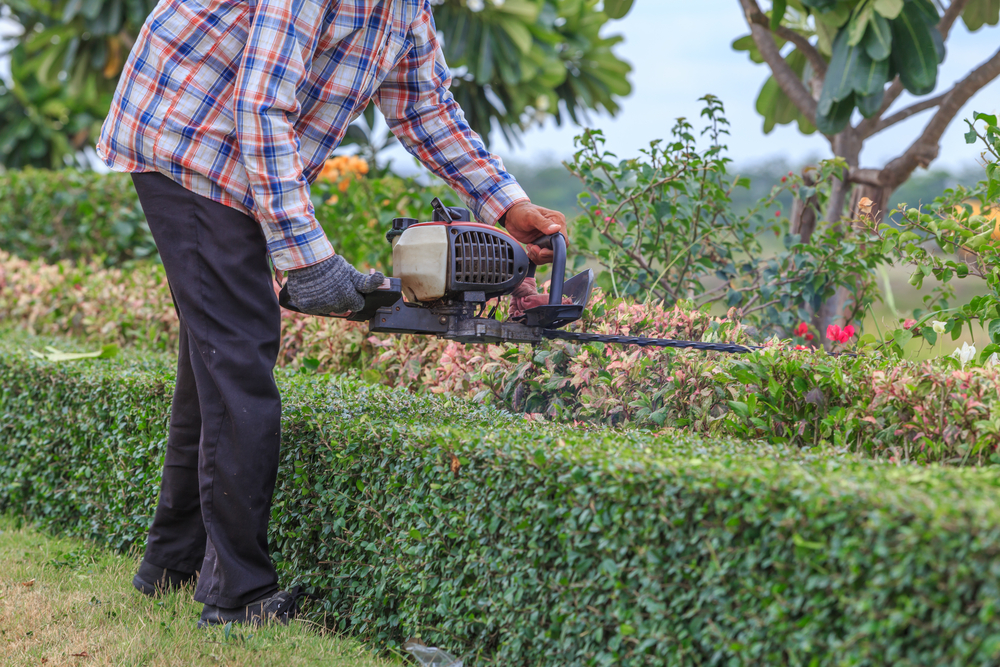Here at The Optimist Daily, we are big fans of gardening. We’ve shared articles about how cultivating a garden is a wonderful practice for maintaining mental health and for supporting our environment. However, that doesn’t mean we want to gloss over the risks that go hand in hand with this relaxing pastime, especially as the weather gets nicer, tempting more people out into their yards.
Stephen Hughes, Senior lecturer in Medicine at Anglia Ruskin University, identifies four health hazards associated with gardening, and shares advice on how to stay protected as you tend to your plants.
Tetanus
Tetanus is not a disease you want to play with. Imagine your muscles going into agonizing spasms due to bacteria called Clostridium tetani and their awful toxins.
It’s widely believed that rusty nails are the main causes, but guess what? These sly bacteria also enjoy lingering out in the soil, especially if it has recently been fertilized. Even your favorite flowers can become covert agents of tetanus if their thorns pierce you or soil gets into a cut.
Thankfully, tetanus vaccines are available in the US, which is great news as this disease can be extremely dangerous, with a death rate of more than 50 percent among people who have not been inoculated. That is why it is critical to double-check your tetanus vaccination status.
Bacteria and fungi
Who would have guessed that a bag of pre-packaged compost could be home to some dangerous guests? For instance, Legionella is an unwelcome bacteria that can cause Legionnaires’ disease, a potentially fatal infection. This one can be especially dangerous for our elderly friends or those with compromised immune systems. Inhaling it can result in a very bad case of pneumonia.
However, it’s not just store-bought compost that poses a risk. Even your own compost heap can harbor a variety of germs and fungi. It’s important to keep an eye out for the nefarious Aspergillus fungus when the sun is shining brightly. It can cause lung problems and possibly spread throughout the body, especially in the elderly and immunocompromised people.
Mold spores can also cause allergies in some people. These allergies are called “farmer’s lung” or extrinsic allergic alveolitis. It used to be all about moldy hay, but now species like Aspergillus and Actinomycetes are showing up in compost piles.
Leptospirosis
Brace yourself because this one is a little gross. Leptospira is a bacteria that lives in rat urine-contaminated water. So, when you’re out gardening, just be careful around ponds and rainfall barrels.
Leptospira has the ability to cause leptospirosis, which is not a pleasant experience. The symptoms begin with headaches, fevers, chills, and vomiting. It can also progress to jaundice, liver and renal failure, and even meningitis.
Power tools
Ah, power tools, our dependable garden pals. They can make our lives so much easier, but they come with a caution sign as well. Hedge trimmers, for example, are excellent for taming untamed hedges, trees and bushes.
However it’s worth being cautious since they may also cause serious bodily harm. Remember to wait until the hedge trimmer has been completely turned off before removing any branches. Always put safety first!
Also worth keeping in mind: Power tools and electrical cables don’t get along. With one wrong move, you could be in for a rude awakening. So, when you’re mowing the lawn or trimming the hedges, keep an eye out for those cables. And, if you’re working from a ladder, make sure it’s firmly planted on level ground and well away from any electricity lines.
How to stay safe
While these garden threats may seem intimidating, don’t worry! There are numerous basic safeguards to keep yourself safe. Just keep any wounds clean and covered while you’re out gardening. Plus, don’t forget about staying up to date with your immunizations, especially when it comes to tetanus. When opening compost bags, keep them away from your face, and avoid attracting rats with cooked food, cover your water butts, and set up traps if necessary.
Lastly, don’t get too close to snakes or disturb the wildlife. Remember, they can be just as nefarious as our rats, so it’s best to keep a safe distance from nature’s beauty. Happy gardening, everyone!











